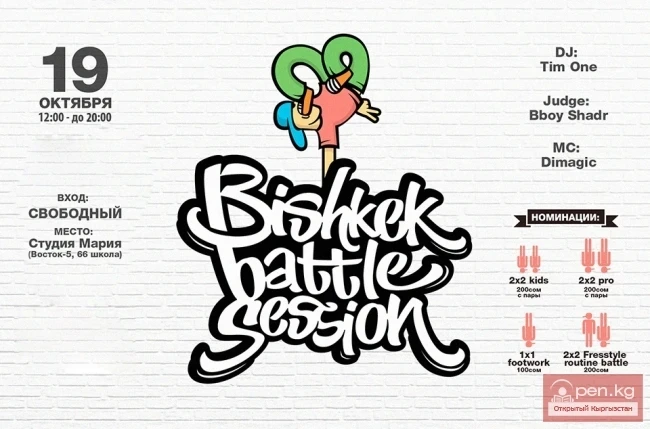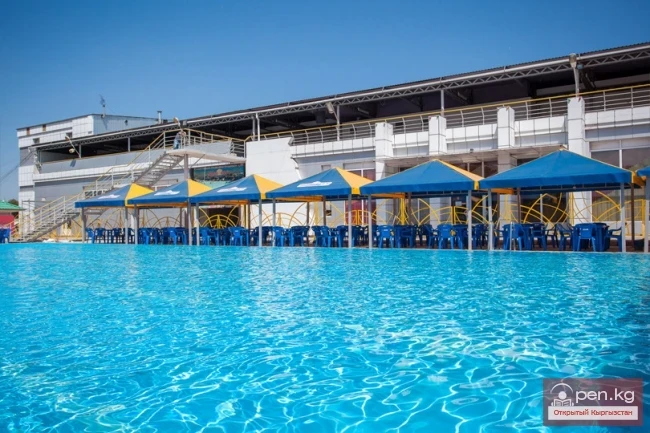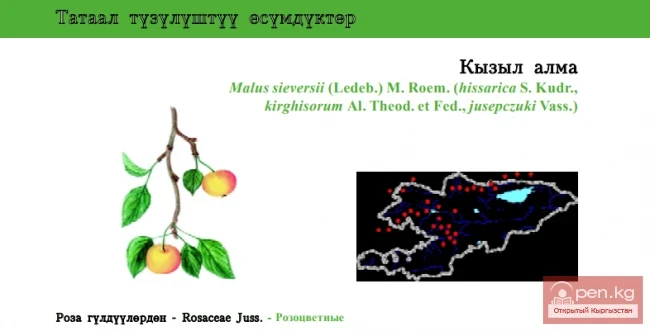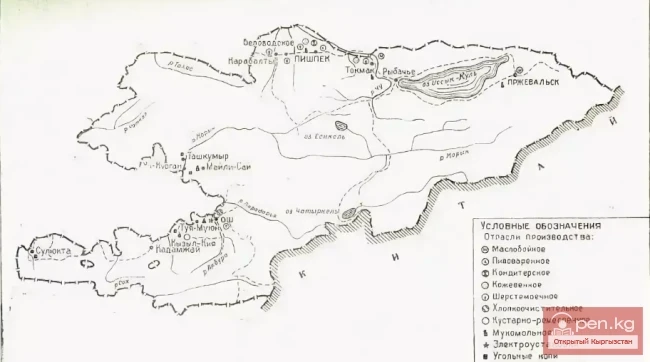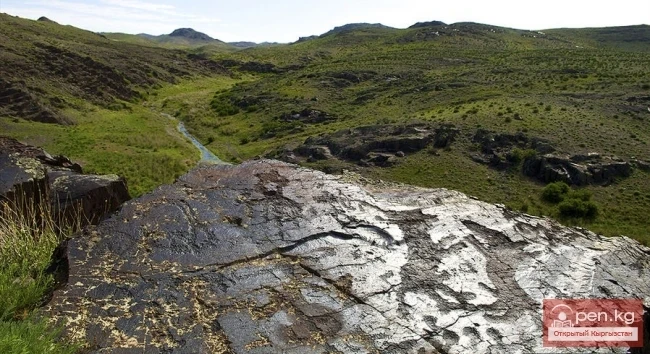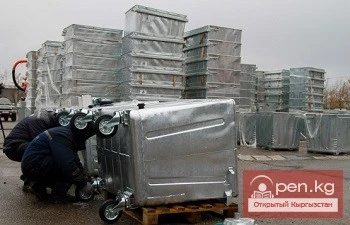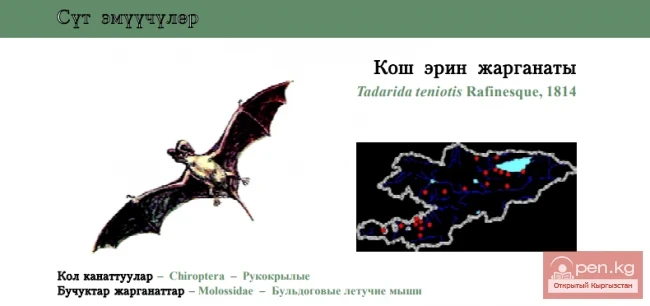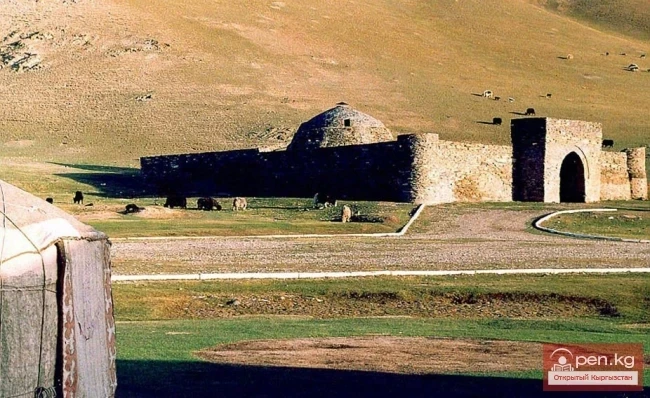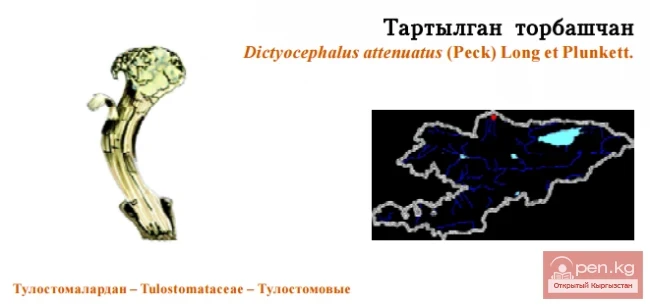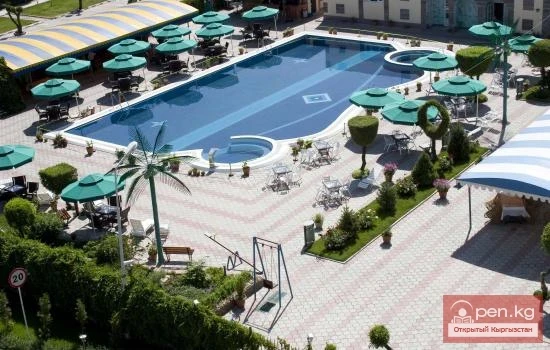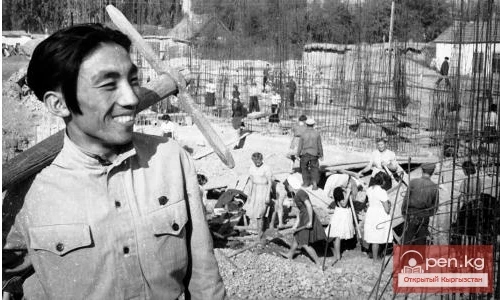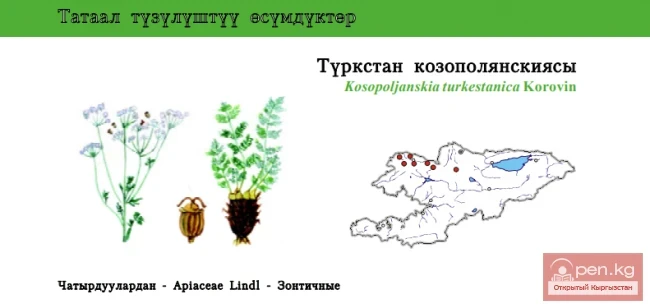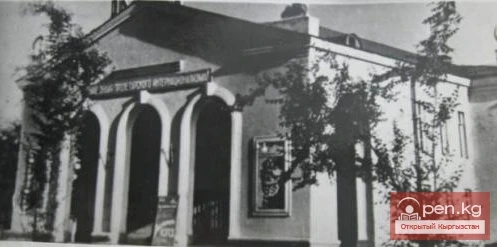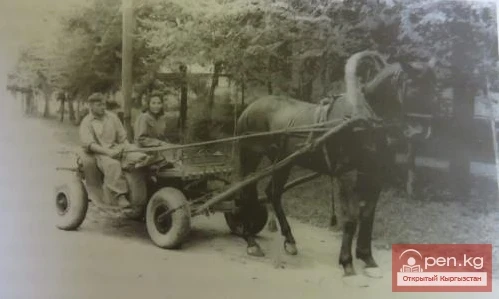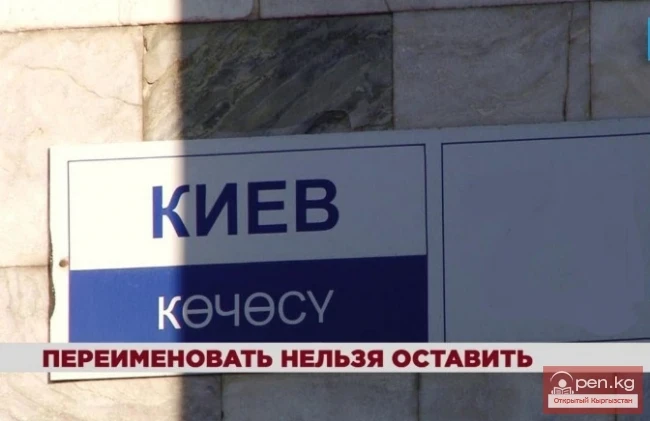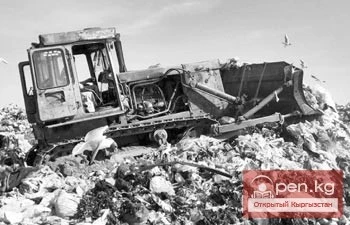
Dirty Work
The Bishkek landfill has long earned a bad reputation, not only due to its negative impact on the environment. In 2001, 14 people—"prospectors" searching for Soviet-era non-ferrous metals—were buried alive here. Using an excavator, they dug a trench 7 meters deep, and when they descended into it, the walls collapsed, burying them under a thick layer of tightly packed garbage. Emergency services that arrived on the scene managed to save only five.
In addition to the risk of accidents, there is a high risk of infectious disease at the landfill. The air here is toxic, which also adversely affects health. Nevertheless, people come to the landfill every day in search of income, and some live in close proximity to the landfill—in illegally constructed new buildings. According to an ethnographic study conducted in 2013 by sociologist Aikokul Arzieva, between 150 and 300 people work at the city landfill, including 10-year-old children and elderly individuals.
- Many of those who work at the landfill are internal migrants who came to the capital after the collapse of the Soviet Union in search of a better life but could not adapt and find work, - says Aikokul Arzieva. - Some people ended up here because they took out microloans and could not repay them. They work as families, living in new buildings, where new generations are already growing up.
According to the expert, people have adapted to life and work at the landfill and rarely complain about their lot. They even highlight positive aspects: they can start and end work whenever they want, take days off, and are not dependent on management. Moreover, at the landfill, one can earn between $5 and $25 a day (150-750 dollars a month), albeit with significant risks to health and life, while the average salary in Kyrgyzstan is $200.
- Today, garbage is a resource, - noted Arzieva. - More than 15 million people worldwide live off garbage: some collect and sort waste to survive, while others have turned it into a big business. In many countries, manual collection and sorting of waste by informal collectors is the only form of managing household waste. Despite their contribution, waste collectors have a low social status, face oppression from intermediaries and authorities, and earn much less than other participants in the informal waste economy.
Disarming the "Bomb"
Meanwhile, the days of the dangerous city landfill, as well as the business that has developed on its grounds, are numbered. The municipal authorities plan to complete the construction of a new landfill in 2017 and begin the reclamation of the old one. This was reported by the director of the Municipal Enterprise "Bishkek Sanitary Landfill," Alybek Apazov.
- The fact that the city landfill poses an ecological threat has been discussed for several years, but for a long time, there were no shifts, - he noted. - The problem is that all the investors who were ready to invest in the construction of a new landfill and waste processing plant were pursuing business interests. They could reuse the raw materials and profit from it. However, when it came to the reclamation of the old landfill, investors refused. We are left with only a few financial institutions that could fund these activities.
The European Bank for Reconstruction and Development (EBRD) has come to the aid of the city authorities, approving a project to improve the solid waste management system in Bishkek and allocating 22 million euros for its implementation. Part of the money will be directed to the technical equipping of the Municipal Enterprise "Tazalyk," and part will address the issue of waste disposal, including the reclamation of the landfill.
- We are currently preparing the technical assignment for the construction of the new landfill, - Apazov reported. - Construction work will begin in the summer of next year and will last for up to 12 months. As soon as the cells for waste burial are technically ready, we will redirect the generated waste to the new sanitary landfill and begin the reclamation process of the old one. According to the project, this will take 8 months.
The director of the Bishkek sanitary landfill explained the reclamation process: waste will be placed in pits with waterproofing to prevent leachate (toxic liquid formed during decomposition) from entering the soil. Pipes will be laid to divert leachate and landfill gas. Later, a green zone will appear where the landfill was buried.
- The new landfill will house a waste sorting plant. Why not a waste processing plant? The practice in neighboring Kazakhstan has shown that it is unprofitable: there are two modern plants there that have received huge investments, and to date, both are idle. The reason is that the raw materials do not reach the plant. Therefore, we decided that a waste sorting plant would be sufficient for us. Moreover, there are enough consumers of secondary raw materials in the republic: rubber, glass, plastic, and much more are recycled, - said Alybek Apazov.
People and Waste
As for the people who live off the city landfill—the new landfill will not be open to everyone.
- The site will provide for the creation of up to 50 jobs, but this is not a solution to the problem. It is physically impossible to accommodate all the people who earn a living by collecting and sorting waste at the new landfill, which is a specially protected strategic zone worldwide. Alternatives must be offered, - noted the director of the municipal enterprise.
Currently, a team from the EBRD is working on the social issue, specifically the implementation of social assistance and employment for people from the landfill:
- The European Bank's project includes a social and environmental policy, - explained the project's social consultant, Saltanat Begalieva. - People affected by the project should not be at a loss after its completion: morally, emotionally, financially, etc. Therefore, social experts and consultants are being engaged to determine how we can help people so that after the landfill closes, they can continue to live in some way. In 2013, we conducted a daily census for six months to find out what groups of people work there. Among them are those who are completely dependent on the landfill and work there every day from morning to evening. Some come only on weekends. Some work exclusively in the evening. Others collect waste in winter because they cannot work on construction sites during the cold season. The social groups are diverse. To date, paradoxically, the primary need for people is documentation. Without documents, it is impossible to buy real estate, obtain registration, or access social and medical services. Many waste collectors lack documentation, and this is the main problem that requires a solution.
In any case, after the reclamation of the old landfill, many of its inhabitants will have to seek a new source of income. As for the new buildings—they will not be legalized even after the landfill closes: firstly, this area will remain a sanitary zone for a long time, and secondly, a cemetery is located nearby.


